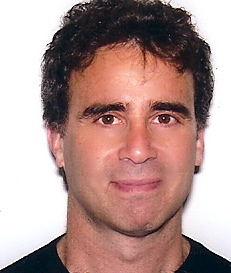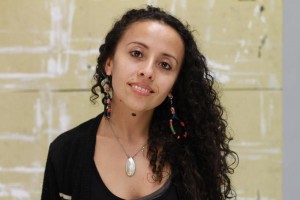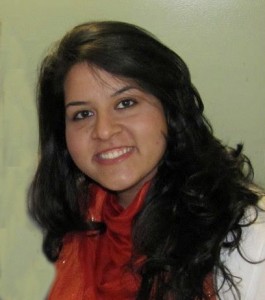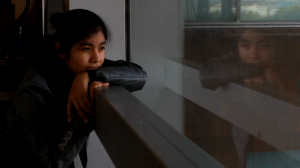Tags: citizenship, deportation, DREAM Act, DREAMers, immigration, immigration reform, latino, LPB, new american girls, New York, NY, UC Davis, unafraid, undocumented
L PB caught up with producers Mitchell Teplitsky and Betty Bastidas and talked about the making of New American Girls a web-series that profiles the lives and struggles of three “DREAMers” who were brought to the US as children by undocumented parents and are fighting for citizenship so they can receive college aid, work legally, and live without the fear of deportation. The subjects of this series – Lorella, Mandeep, and Kassandra – are three of the thousands of DREAMers who decided to come forward with their stories.
PB caught up with producers Mitchell Teplitsky and Betty Bastidas and talked about the making of New American Girls a web-series that profiles the lives and struggles of three “DREAMers” who were brought to the US as children by undocumented parents and are fighting for citizenship so they can receive college aid, work legally, and live without the fear of deportation. The subjects of this series – Lorella, Mandeep, and Kassandra – are three of the thousands of DREAMers who decided to come forward with their stories.
LPB caught up with producers Mitchell Teplitsky and Betty Bastidas and talked about the making of this timely and compelling web-series. Mitch Teplitsky is a documentary producer specializing in cross-cultural stories based in New York City. His first partnership with LPB was Soy Andina, a documentary about two dancers in New York who journey to Peru to reconnect with their roots, which premiered on LPB’s VOCES series in 2008. Teplitsky keeps returning to Peru and in 2012 was awarded a Fulbright grant to co-produce Perephia, a multimedia magazine about Andean culture. He is currently developing a sequel to Soy Andina.
 Betty Bastidas is is an award-winning filmmaker, photographer and educator based in Ft. Greene, Brooklyn, and co-founder of Maracuya Productions. She was born in Ecuador and came to the U.S. at the age of nine. As an immigrant child, Bastidas found the camera to be a tool for exploring and understanding her new surroundings and navigating the two cultures in which she found herself sandwiched —American and Latino. She is nearing completion on her feature documentary DreamTown, about Afro-Ecuadorian soccer players, and teaches documentary filmmaking to youth as a Teaching Artist for the Tribeca Film Institute. New American Girls is still available to stream on PBS.org HERE.
Betty Bastidas is is an award-winning filmmaker, photographer and educator based in Ft. Greene, Brooklyn, and co-founder of Maracuya Productions. She was born in Ecuador and came to the U.S. at the age of nine. As an immigrant child, Bastidas found the camera to be a tool for exploring and understanding her new surroundings and navigating the two cultures in which she found herself sandwiched —American and Latino. She is nearing completion on her feature documentary DreamTown, about Afro-Ecuadorian soccer players, and teaches documentary filmmaking to youth as a Teaching Artist for the Tribeca Film Institute. New American Girls is still available to stream on PBS.org HERE.
New American Girls profiles the lives and struggles of Mandeep, Lorella, and Kassandra, three of the estimated 1.8 million young adults brought to the USA as children by undocumented parents who remain without a pathway to citizenship. What inspired you to create this web series?
Lorella
MT: Like a lot of documentary projects, this started out as another story. I was invited by a college professor at the University of Colorado to do a video about a program she ran for high school girls interested in engineering and science. It turned out that several the girls were undocumented — raised in the USA, but born elsewhere. I’d never encountered or thought about that particular group. That led me to read about about the DREAM movement, which was growing but hardly a national story yet. When I applied for grants, I decided to focus on the story of the DREAMer; it seemed more interesting and fundable which turned out to be the case.
BB: When Mitch brought up the idea of working alongside him on this project, I was immediately hooked. For me, this story was a personal one that brought me back full circle. I was undocumented for 10 years of my life after coming to the US with my parents at the age of 9 so I knew very well the fears and hopelessness Mandeep, Lorella, Kassandra and the rest of the 1.8 million immigrant youth felt, and the odds that are stacked against them because they are undocumented. This was an opportunity to humanize an issue that affects so many, and a way to show that Dreamers are in many ways American.
New American Girls provides insight on why we need comprehensive immigration reform in the US. What impact do you hope the web series will have on the current rhetoric on immigration policy in the United States today?
Mandeep
MT: It’s pretty remarkable timing. As I write this, tomorrow President Obama is scheduled to announce historical Immigration Executive Action; his attempt to “fix the broken immigration system within my lawful authority.” I think the impact of the series remains what was originally conceived – to simply put a human face on a big, complicated, divisive political topic, and spark empathy and understanding. It seems to me that the DREAMers really deserve to have the right to live and work in the country they were raised in and others would feel that way too if they actually got to meet individual DREAMers like the subjects of this series.
BB: I’d like to remind people that every person has a right to dream and become their dream, even undocumented youth. These immigrant youth, as Lorella put it so eloquently, “….are our neighbors, they are our daughters, they are the folks next door.” Dreamers have grown up in the US and consider it their home more so than the countries they were born in and left. As we see DACA being extended for another term, a long term solution that is not just a temporary fix, needs to be implemented, so DREAMERS are no longer living in limbo and they have a place in our society to contribute as many have already and will continue to do so.
The web-series premiered on PBS.org as part of Hispanic Heritage Month this year and is currently streaming online now. Tell us about the journey of the series.
Kassandra
MT: It certainly went on longer than planned! We started out by identifying and following the stories of four young women around the country, from Denver, Dallas, Connecticut and California. But that really proved difficult, logistically and financially. We had to stop when funding ran out. Thankfully, LPB came through with finishing funds, and the story itself was starting to make national headlines, so interest remained high. When we resumed, it turned out that one of the original subjects didn’t want to continue. Another, I could never reach. We decided to complete the stories of two (Lorella and Mandeep), and find a third story to compliment theirs, preferably someone in the New York area where I live. At that point I decided to look to partner with another filmmaker, someone skillful and passionate about the topic, to help me complete the series. I was introduced to Betty Bastidas, who not only co-directed and (beautifully) shot the Kassandra story, but helped produce the entire series, making it much better than if I had remained solo.
BB: When I stepped into this project, the journey had already begun, there were compelling subjects like Lorella and Mandeep that Mitch had been following and we needed to update their stories. I came in and brought focus. From an outsider perspective it was clear we should focus on our strongest characters. We also embarked on finding a character based in NY since we are based here and logistically, it was most feasible for both Mitch and I to get the job done.
Tell us about the process of making ‘New American Girls.’ What struggles did you come across and what would you do differently?
MT: Every doc project I know of has plenty of struggles, this being no exception. I think one core struggle/mistake was being too ambitious. My idea was to follow multiple stories concurrently, in different places around the country (to show that it was a national problem), and work with different collaborators in each place. That was not practical. Scaling down a bit (from 4 to 3 subjects and working locally in New York) was a necessary and good adjustment.
BB: I really enjoyed working with Mitch. He knew this project was very personal to me and really let me spread my wings and bring the experience from producing other stories like Can’t Hold Me Back following a youth from Detroit as he becomes the first in his family to earn a high school diploma, to these series. He was open to my recommendations for music and graphics, as well as story structure, and I felt we worked well as a team together.
As I’m sure your viewers would like to know, what can you tell us about the current legal status of the three DREAMers?
MT: Well, all three have legal status right now. Lorella has permanent legal status because she married an American citizen (a fellow activist). Kassandra and Mandeep have temporary legal status through DACA, the program enacted in 2012 by the Obama administration that gives eligible Dreamers two years protection from deportation.
How do your subjects and their families feel about the web-series and what effect has it had on their lives?
MT: They’ve all told me they are happy and proud with the way their stories came out and with the series as a whole, which was very important to me. I would have felt bad if they felt otherwise. As for the effect it’s had on their lives: that’s a great question I’ll have to relay to them! I haven’t had a chance to really talk with them since the series premiered (but have a good reason, making the new film in the Andes). I would venture to guess however, that the series might be most “impactful” for Kassandra, who hadn’t been as public about her status as the others.
What do you hope audiences will take away from your series?
MT: I hope the series will touch viewers emotionally in some way, and inspire them to discuss or learn more about the immigration situation in this country, with open minds.
BB: I hope audiences will understand the complexities that Dreamers face on a day to day level, their dreams they aspire to fulfill, and their love for this country. I hope these profiles will inspire people to become more engaged in the immigration reform conversation and that real permanent change to our antiquated immigration systemwill be visible one day soon.
Why is public media the best platform to showcase this web-series?
MT: The mission of public media dovetails with ours: to present programs about people who are not typically portrayed in mass media. That’s the “space” we want to be in. And public media is prestigious. It’s a wonderful endorsement and source of pride and credibility to have public media present our work.
BB: Public television viewers are by definition those who are curious about the diversity of the US and its communities, making them an ideal audience for New American Girls. This project is in line with public media’s commitment to quality programming that, in the words of the network’s website, “open up worlds.”
Can you tell us about any projects you’re currently working on?
MT: I just returned from Peru to shoot a follow-up to Soy Andina (which aired on LPB’s VOCES in 2009). This time, folkdancer and ex-New Yorker Nelida Silva returns to her birthplace to try to become the first-ever woman mayor in the province running against eight tough men. I’m planning to edit a sample/trailer by the end of the year. I continue to distribute Soy Andina and a few other Peruvian docs to universities.
BB: I am currently seeking post-production funding on my first feature film called Dreamtown, following three afro-Ecuadorian soccer players as they strive against all odds to make it to the professional leagues. Our coming of age story addresses the complex issue of race within the Latino community; it depicts a community —Afro-Latinos— who are rarely seen in the media; and it uses the lens of soccer to appealing to a wide audience.
What advice do you have for any aspiring filmmakers?
MT: Choose subjects that you can’t stop thinking about and that you’re really passionate about. That will sustain you during the ups and downs and often long process of making a film. (Unless of course you’re getting paid really well!). That passion will also be essential for fundraising. I’d also encourage filmmakers to have a web presence early on and constantly build a mailing list. You must cultivate the habit of proactively building that list. Always be asking your network — family, friends, fans, colleagues, funders, distributors, roommates, associates, etc. etc. — for permission to add their emails to your list so you can keep them updated about the work you’re doing.
BB: Don’t wait to be assigned a story — go out and get it. If you wait, you will never make your film. Make a name for yourself through pursuing a story you are really passionate about. Passion is contagious and will guide your way while also attracting a team that is passionate about similar issues. It is very important to have a team behind you and not to get into this alone.
3568 Views






